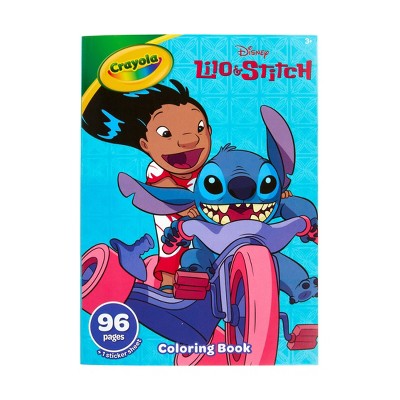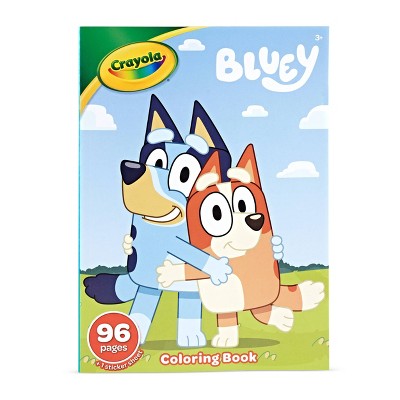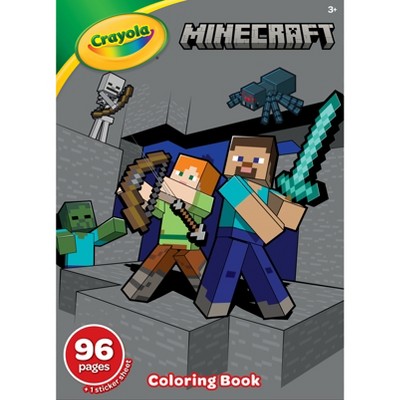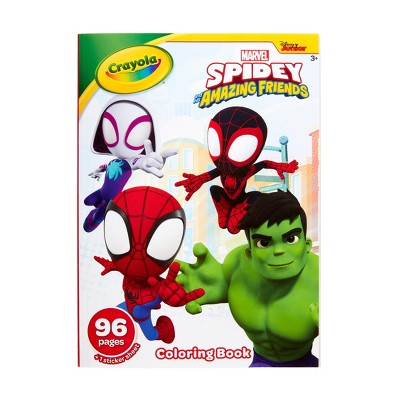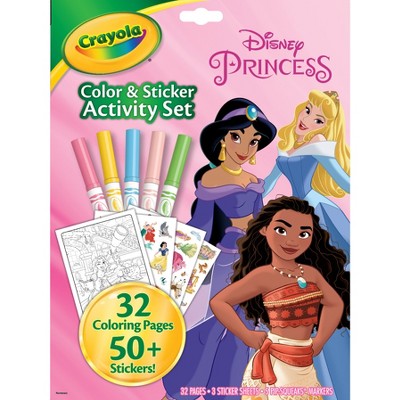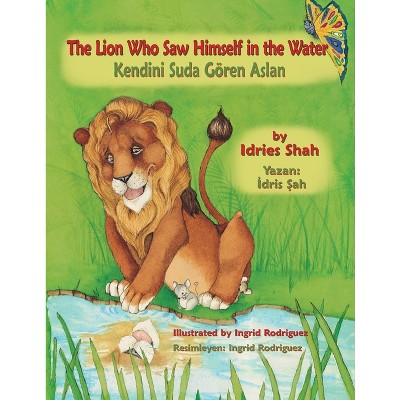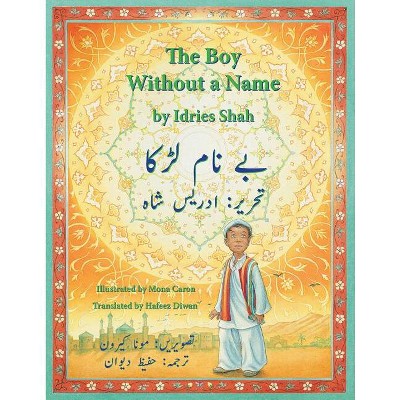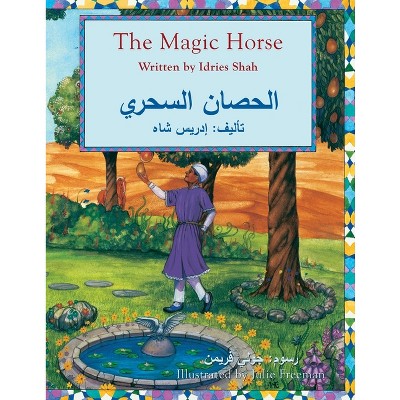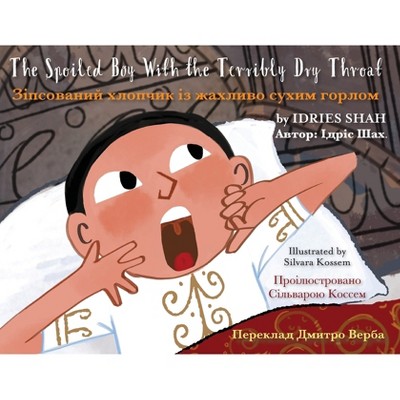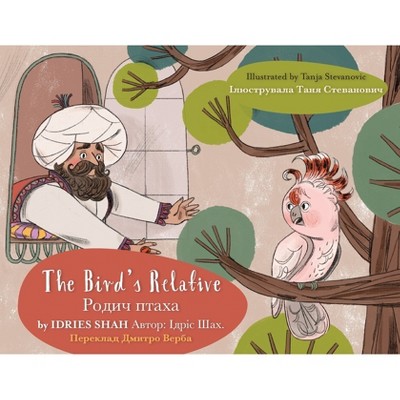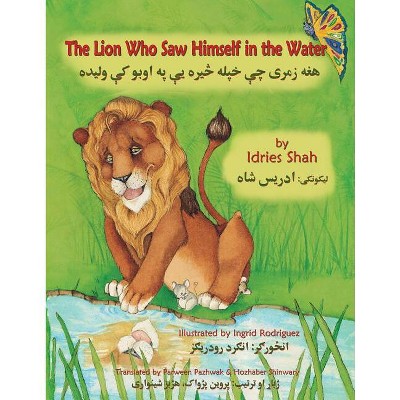Neem the Half-Boy/ Yarım Oğlan Nini - (Teaching Stories) by Idries Shah (Paperback)

About this item
Highlights
- (Bilingual English-Turkish edition) Wanting badly to have a son, the Queen of Hich-Hich consults Arif the Wise Man on the matter.
- 8-12 Years
- 11.0" x 8.5" Paperback
- 38 Pages
- Juvenile Fiction, Fairy Tales & Folklore
- Series Name: Teaching Stories
Description
About the Book
Because she does not follow the precise instructions given to her by a wise man, a queen gives birth to a half-boy. He succeeds in completing himself thanks to an act of intelligence and negotiation, and by dint of compromise.
Book Synopsis
(Bilingual English-Turkish edition) Wanting badly to have a son, the Queen of Hich-Hich consults Arif the Wise Man on the matter. But because she fails to follow his precise instructions, she gives birth to a half-boy, whom she calls Neem. That Neem is able to make himself complete by an act of cleverness, negotiation and compromise teaches children much more than the expected, usual lesson of bravery. This enchanting tale, complete with fairies and a fire-breathing dragon, is marvelously and magically illustrated by Midori Mori and Robert Revels. Neem the Half-Boy is one of an illustrated series of Sufi teaching stories from the Middle East and Central Asia that were collected and adapted for children by Idries Shah, and that have captivated hearts and minds for more than a thousand years. The stories are designed to help children learn to examine their assumptions and to think for themselves.
(İngilizce-Türkçe İki Dilli Baskı) Hiçhiçistan Kraliçesi, Bilge Adam Arif'in kendisine verdiği kesin talimatları yerine getirmediği için yarım bir oğlan doğurur. Bunun nasıl olduğu ve yarım oğlan Prens Nini'nin nasıl tam hâle geldiği, Orta Asya ve Orta Doğu'da bin yıldan fazla bir süredir dilden dile anlatılan bir hikâye.Bu hikâye, otuz yılı aşkın bir süredir bölgedeki sözlü ve yazılı kaynaklardan geleneksel hikâyeler toplayan Afgan yazar ve eğitimci İdris Şah tarafından çocuklara sunuluyor.
Review Quotes
"Neem the Half-Boy deals with the universal theme of being incomplete and having to overcome difficulties to find oneself. ... [Neem] eventually becomes whole, not by resorting to violence, but through a combination of cleverness, persistence, and compromise." - Multicultural Perspectives: An Official Journal of the National Association for Multicultural Education (U.S.)
"Shah's adaptation of this traditional Sufi tale will encourage children to contemplate the meaning of psychological 'wholeness.'" - Bookbird: A Journal of International Children's Literature
"These teaching stories can be experienced on many levels. A child may simply enjoy hearing them; an adult may analyze them in a more sophisticated way. Both may eventually benefit from the lessons within." - "All Things Considered," National Public Radio (U.S.)
"They [teaching stories] suggest ways of looking at difficulties that can help children solve problems calmly while, at the same time, giving them fresh perspectives on these difficulties that help them develop their cognitive abilities" - psychologist Robert Ornstein, Ph.D., in his lecture "Teaching Stories and the Brain" given at the U.S. Library of Congress
"Through repeated readings, these stories provoke fresh insight and more flexible thought in children. Beautifully illustrated." - NEA Today: The Magazine of the National Education Association (U.S.)
"Shah's versatile and multilayered tales provoke fresh insight and more flexible thought in children." - Bookbird: A Journal of International Children's Literature
"These stories ... are not moralistic fables or parables, which aim to indoctrinate, nor are they written only to amuse. Rather, they are carefully designed to show effective ways of defining and responding to common life experiences." - Denise Nessel, Ph.D., Senior Consultant with the National Urban Alliance for Effective Education (U.S.), writing in Library Media Connection: The Professional Magazine for School Library Media Specialists (U.S.)
"These enchanting stories Shah has collected have a richness and depth not often encountered in children's literature, and their effect on minds young and old can be almost magical." - Multicultural Perspectives: An Official Journal of the National Association for Multicultural Education (U.S.)
"In this tradition, the line between stories for children and those for adults is not as clear as it seems to be in Western cultures, and the lessons are important for all generations." - School Library Journal (U.S.)
"Our experiences show that, while reading Idries Shah's stories can help children with reading and writing, the stories can also help them transcend fixed patterns of emotion and behaviour which may be getting in the way of learning and emotional well-being too. ... We've found that this strategy can be particularly powerful, especially when change may be resistant to appeals to reason alone. By flying under the radar of emotion and analytical thinking, the patterns contained within a story can shift children's perspective, to let them 'own' the meaning for themselves." - Ezra Hewing, Head of Education at the mental-health charity Suffolk Mind in Suffolk, U.K.; and Kashfi Khan, who teaches English as an additional language at Hounslow Town Primary School in London
